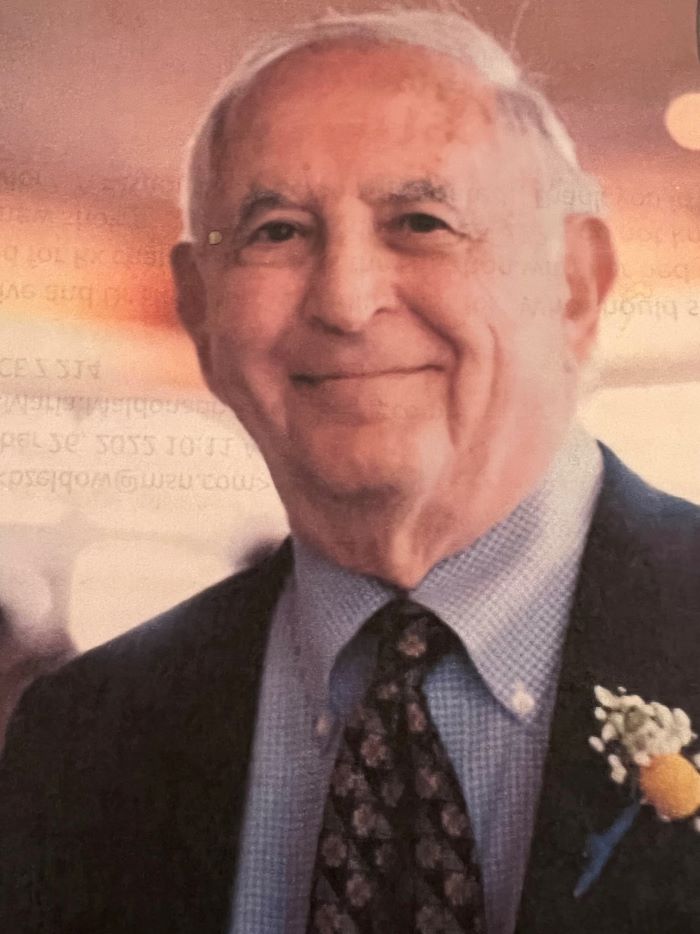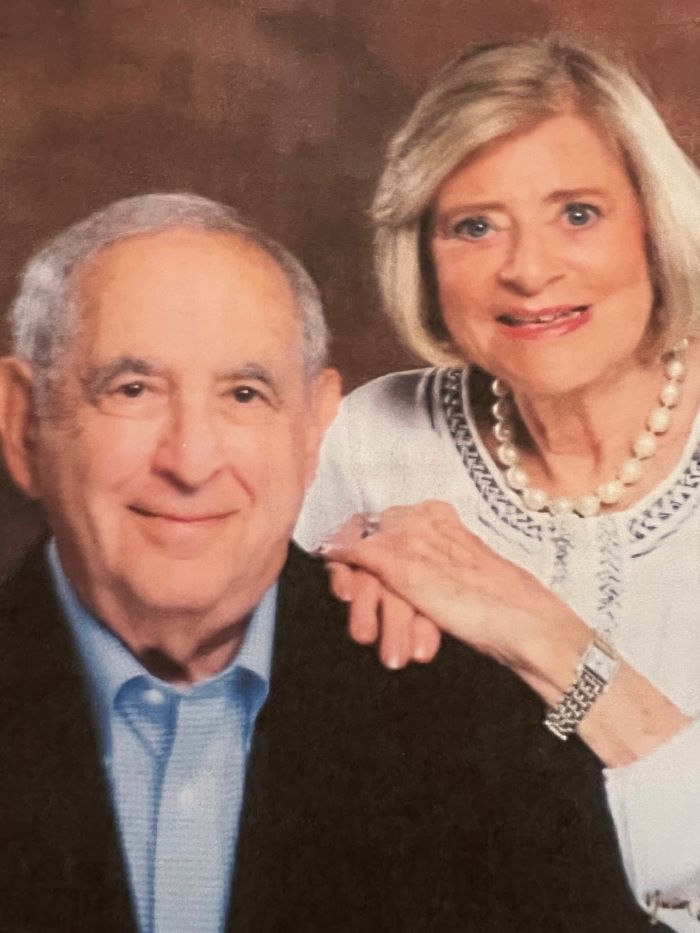Down Memory Lane: A Q&A With Life Member Dr. Bernard J. Zeldow

Dr. Bernard J. Zeldow
Compiled by Michael Dobrow
At 95½ years old, Bernard J. Zeldow, D.D.S., is likely the AAE’s oldest current member. Michael Dobrow recently interviewed Dr. Zeldow about his experiences as an endodontist and his many decades as an AAE member. Dr. Zeldow currently lives in Washington State with his wife Joyce, and tells his story in his own words in this Q&A.
Michael Dobrow: Can you tell me a little bit about yourself and what inspired you to become an endodontist?
Dr. Bernard Zeldow: I was born in Binghamton, N.Y., May 22, 1927, one of three brothers. My eldest brother was a dentist who served in World War II, a graduate of the University of Pennsylvania Dental School; my middle brother became an attorney at Cornell University. I attended the University of Buffalo with a brief interlude in the Navy during World War II and graduated with a B.A. in 1949. My major was biology. I then went across country to the University of Washington and obtained an M.S. degree in microbiology. It was here in Seattle that I met my wife of 73 years. It appeared that I was to become a college “bum” as we left for Philadelphia to attend the graduate program of the Wharton School of Business with the intention of fulfilling the requirements for an MBA. I soon learned that this was not for me and we were toying about a future in dentistry.
I vividly remember walking down two blocks to the University of Pennsylvania School of Dentistry, asked to see the Dean (Dr. Burkett) with my credential inquiring if I qualify for entrance to the D.D.S. program and was assured I would be accepted next semester. This, and selection of a life partner, were among the best decisions I ever made. I graduated with honor in 1956 with a D.D.S. degree. During my senior year, we had an addition of a daughter, Elise. We then moved to Chicago for a one-year internship at the Walter G. Zoller Dental Clinic of the University of Chicago (1956-1957).
Back to Penn Dental School: I received a number of honoraries while there. To enumerate: Henry Goldman Award in Pathology OKU, Phi Sigma Biological Society, Sigma Xi. My wife worked for the Saturday Evening Post.
I belonged to a number of pertinent organizations: AAE, ADA, International Association for Dental Research, American Association of Immunologists, and am a Diplomate of the American Board of Endodontics.
During my internship in Chicago, Dr. John Ingle, Department chair of Endodontics at the UW, came out to interview me and offered me a position as an instructor, which I accepted. This was the beginning of my academic career. The year was now 1957.
I commenced as an instructor in 1957 and moved up through the ranks (assistant professor, associate professor, professor) until I became clinical professor emeritus in 1991. I also served as a consultant of the Veterans Administration Hospital, Seattle, and Post-Graduate faculty, University of Oregon Dental School.
One of the most satisfying things I accomplished at the UW Dental School was to design and establish an oral microbiology laboratory within the Endodontic Department as there was none prior to this. It was supported by NIH, for which I am grateful. To not be too specific, my research and publication had to do with the role microbes had with endodontics, saliva and its antibacterial activity, to mention a few. I published in the Journal of Dental Research, JADA, Journal of Immunology, Oral Surg, Oral Med, Oral Path, etc., and a contributor to Dr. John Ingle’s first publication of his text of Endodontics. I created numerous presentations, before national and international organizations. I was mentor to a Japanese Fulbright scholar from Osaka University.
A little about my personal life. I enjoyed skiing locally and once a year traveled to a destination ski resort with my friends. I liked to travel overseas. Investments were a hobby. I liked to read, especially biographies. Up to date on national and international news. As an aside, Rod Serling of The Twilight Zone was a boyhood friend of mine. Family is the most important thing to me and I stress education.
Joyce is still with me. We have a daughter, two sons and two grandsons.

Dr. Zeldow and his wife, Joyce
Dobrow: I.B. Bender, Edgar D. Coolidge, Louis I. Grossman and Ralph F. Sommer are often referred to as “the Founding Fathers of Endodontics” – did you know them — or their colleagues – and if so – can you tell me more about your relationships with them?
Dr. Zeldow: Drs. I.B. Bender and Louis Grossman were both teachers of mine. They had a tremendous influence on me. Over the years, I got to know each of them better. I.B. was slight in stature but very intellectual. He always had an answer to any issue. I got to know him on social and professional levels as the years passed.
On the other hand, Louis was more reserved one didn’t speak to him much – unless he initiated the conversation. He emphasized sterility in endodontics. After you broke down YOUR fear of conversing with him, he was very friendly. Both of these men also greatly influenced me. Dr. John Ingle is someone who had a tremendous influence on me, and he was my mentor. He developed one of the most outstanding departments during his tenure.
He was a great teacher and instrumental in getting endodontics recognized by the ADA as a specialty. There were so many “giants” in the field that I knew – too numerous to mention, but no one can discuss endodontics without mentioning my close friend, Herb Schilder or Eugene Natkin and Henry Van Hassel.
Dobrow: What have you enjoyed most about being an AAE member?
Dr. Zeldow: It kept me in constant contact with what is going on in newest treatments in root canal therapy. The Association also helped me keep abreast of the latest research in endodontics and general dentistry.
Dobrow: How has endodontics evolved over your long career?
Dr. Zeldow: With the passage of time, numerous improvements have been made in root canal therapy. To mention a few, rotary intracanal instruments are now used which improves debridement and shaping of the canals. The metal composition of the instruments have also improved, which helps minimize breakage of the instrument in the canal. And the acceptance of the microscope used in treatment has helped locate additional canals within a tooth, improving the success of treatment.
Dobrow: What’s a notable AAE memory?
Dr. Zeldow: I can well remember – this goes back to a time – when every meeting of the AAE had to be held in Chicago and during the winter. Being a snow belt made traveling to and from very hard! I remember the frigid winters and snowfall constantly impacting my returns to the Seattle area. At some point, they alternated years between Chicago and someplace else, and I believe they did so in the early ‘60s. Now, it’s held in a different location annually. I also interned at the University of Chicago, and I remember the cold wind off the lake.
Dobrow: How has the perception of root canal treatment changed through the years?
Dr. Zeldow: People still seem to fear them and may not realize that they save their teeth and relieve their pain. I think the AAE has made strides to overcome these perceptions, but it continues to be a difficult task.
Dobrow: What sort of advice would you like to impart on the future generation of endodontists or current ones?
Dr. Zeldow: There comes a time when you can no longer practice endodontics and now, I’ve come to a point where I have no substitute. Many of my dear friends and colleagues are no longer with me. So, take time to enjoy life and take up a hobby. Also – education is essential for fulfillment in life.
Michael Dobrow is the AAE’s advocacy manager. He can be reached at mdobrow@aae.org.




